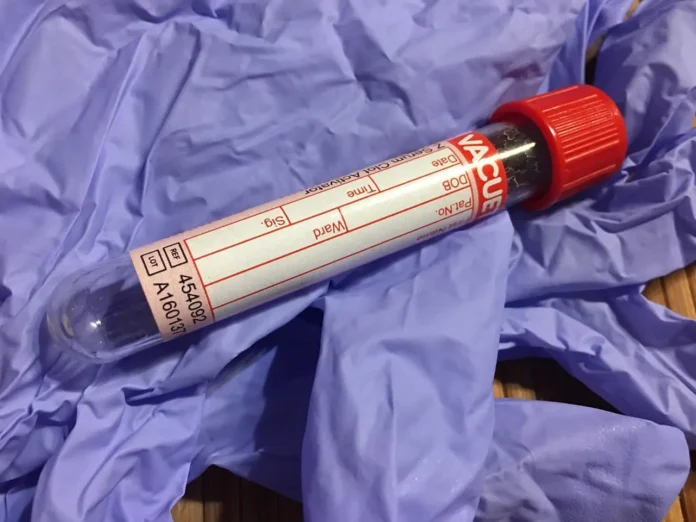In the realm of cancer detection and monitoring, traditional methods often involve invasive procedures such as tissue biopsies. However, a revolutionary technique known as liquid biopsy is rapidly gaining traction as a non-invasive alternative that offers valuable insights into the presence and progression of various cancers. Liquid biopsy involves the analysis of biological fluids, primarily blood, to detect fragments of tumor DNA, RNA, proteins, or other molecules shed by cancerous tumors into the bloodstream. This innovative approach holds immense promise for early cancer detection, monitoring treatment response, and tracking the evolution of tumors, ultimately revolutionizing personalized cancer care.
Principle and Techniques
At the core of liquid biopsy lies the principle of capturing and analyzing circulating tumor components, known as circulating tumor biomarkers (CTBs), present in bodily fluids. These biomarkers can include circulating tumor cells (CTCs), circulating tumor DNA (ctDNA), extracellular vesicles (EVs), microRNAs, and proteins. The detection and analysis of these components provide valuable information about the genetic makeup, mutational profile, and metastatic potential of tumors.
Liquid biopsy techniques encompass various methods for isolating and analyzing CTBs from blood samples. Common approaches include:
ctDNA Analysis: This method involves the extraction and sequencing of cell-free DNA fragments released by tumor cells into the bloodstream. By identifying specific mutations or genetic alterations characteristic of cancer, clinicians can gain insights into tumor heterogeneity, treatment response, and the emergence of resistance mutations.
Circulating Tumor Cell (CTC) Enumeration: CTCs are intact cancer cells shed from primary tumors or metastatic sites into the bloodstream. Isolation and enumeration of CTCs provide information about tumor burden, metastatic potential, and the effectiveness of treatment. Advanced technologies, such as microfluidics-based platforms, enable efficient capture and analysis of CTCs from blood samples.
Extracellular Vesicle (EV) Analysis: EVs, including exosomes and microvesicles, are small membrane-bound vesicles released by cells, including cancer cells, into bodily fluids. These vesicles carry various biomolecules, including nucleic acids and proteins, reflecting the molecular characteristics of the originating tumor cells. EV analysis offers insights into intercellular communication, tumor microenvironment dynamics, and potential biomarkers for cancer diagnosis and prognosis.
Clinical Applications
Liquid biopsy holds significant implications for cancer diagnosis, treatment selection, and monitoring across various clinical scenarios:
Early Cancer Detection: Liquid biopsy enables the detection of cancer at early stages when tumors are small and localized. By identifying circulating tumor biomarkers, clinicians can detect cancer before symptoms manifest, facilitating timely intervention and improved outcomes.
Treatment Response Monitoring: Real-time monitoring of treatment response is crucial for optimizing cancer therapy and minimizing adverse effects. Liquid biopsy provides a dynamic assessment of tumor evolution, allowing clinicians to adapt treatment strategies based on molecular changes and emerging resistance mechanisms.
Minimal Residual Disease (MRD) Monitoring: Following surgical resection or completion of primary therapy, liquid biopsy can detect residual disease or early signs of recurrence that may not be apparent through imaging or conventional biomarkers. MRD monitoring enables proactive intervention and personalized surveillance protocols tailored to individual patients’ risk profiles.
Therapeutic Target Identification: Liquid biopsy facilitates the identification of actionable genetic alterations and therapeutic targets, guiding the selection of targeted therapies, immunotherapies, or clinical trial enrollment based on the molecular profile of the tumor.
Tumor Heterogeneity Assessment: Cancer is characterized by intratumoral and intertumoral heterogeneity, posing challenges for effective treatment. Liquid biopsy offers insights into the genomic landscape of heterogeneous tumors, guiding treatment strategies that target specific subclones and overcoming resistance mechanisms.
Challenges and Future Directions
Despite its transformative potential, liquid biopsy faces several challenges that warrant further research and technological advancements:
Sensitivity and Specificity: Improving the sensitivity and specificity of liquid biopsy assays is essential for reliable detection of ctDNA, CTCs, and other circulating biomarkers, particularly in early-stage cancer and low tumor burden scenarios.
Standardization and Validation: Standardizing protocols and validating liquid biopsy assays across diverse cancer types and clinical settings are critical for ensuring reproducibility, reliability, and clinical utility.
Technological Advancements: Continued innovation in technology, including next-generation sequencing, microfluidics, and single-cell analysis, will enhance the sensitivity, throughput, and cost-effectiveness of liquid biopsy platforms.
Clinical Integration: Integrating liquid biopsy into routine clinical practice requires multidisciplinary collaboration, clinician education, and reimbursement strategies to ensure widespread adoption and equitable access to this transformative technology.
In conclusion, liquid biopsy represents a paradigm shift in cancer diagnosis and monitoring, offering a non-invasive, real-time approach to interrogate the molecular landscape of tumors. By harnessing the power of circulating tumor biomarkers, liquid biopsy holds immense promise for early detection, treatment optimization, and personalized cancer care, ultimately improving patient outcomes and quality of life. As research advances and technology evolves, liquid biopsy is poised to become an indispensable tool in the oncologist’s armamentarium, driving precision medicine forward in the fight against cancer.


